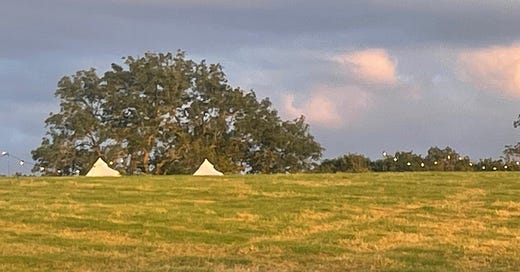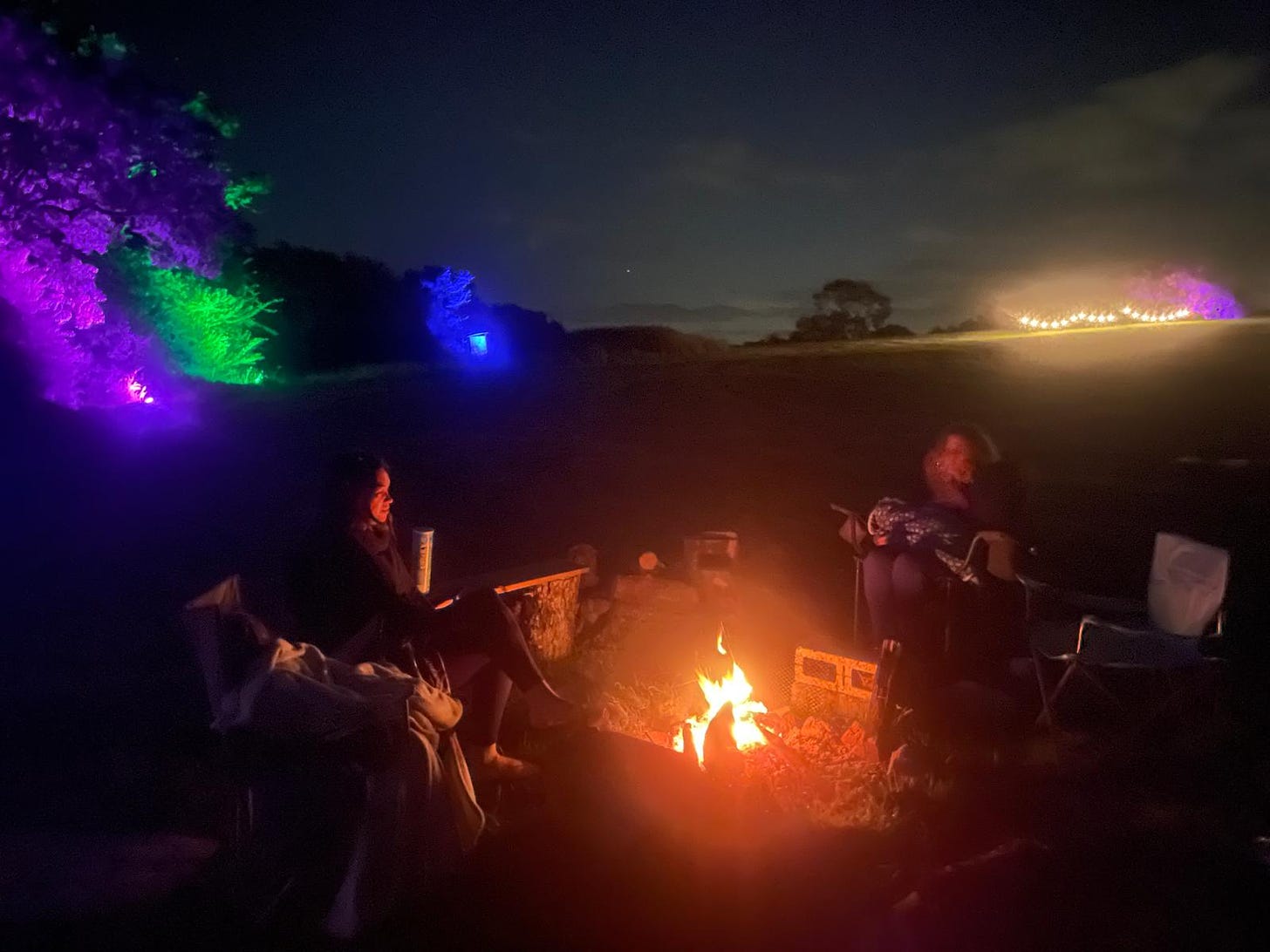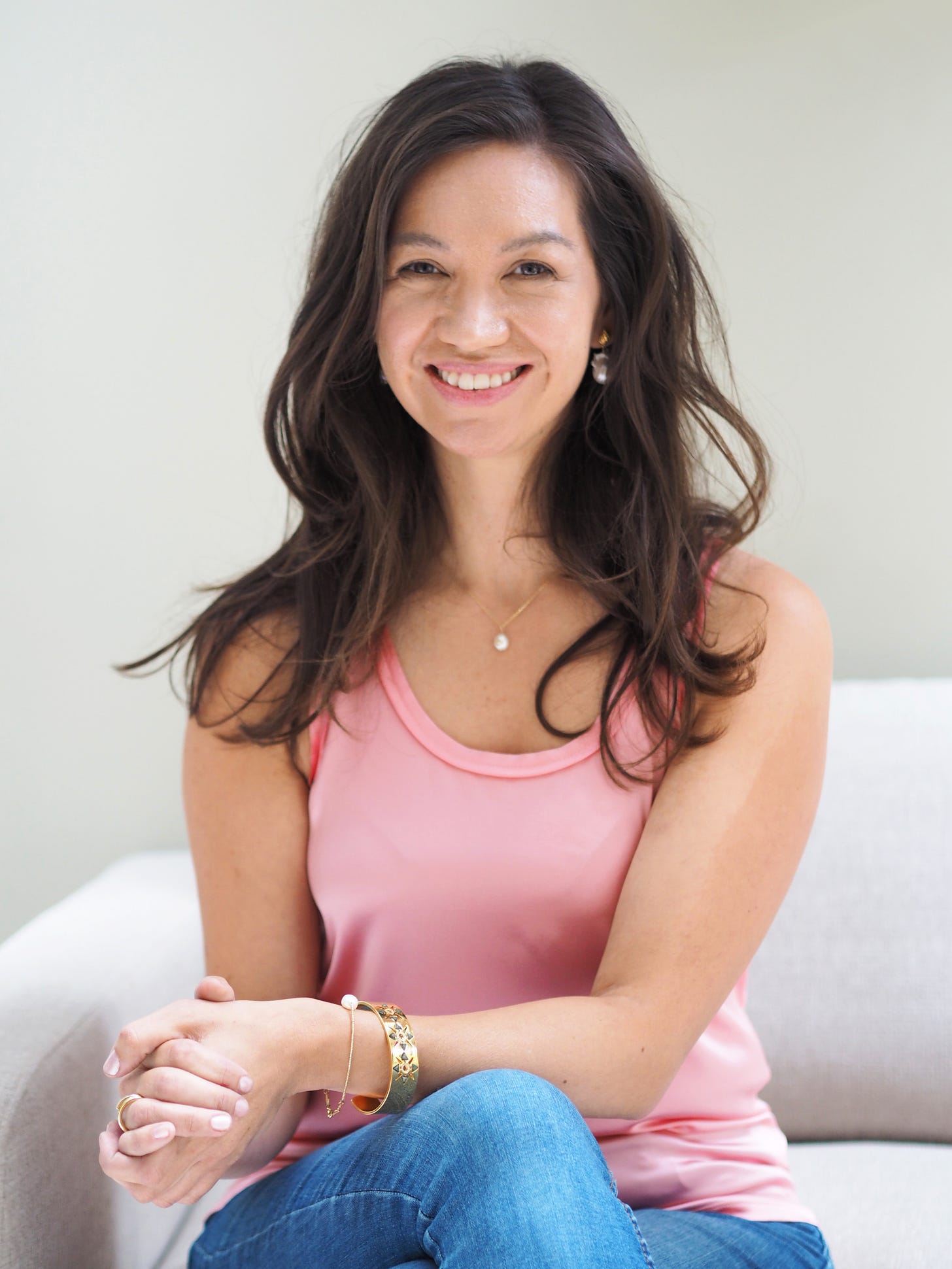If you liked reading this, feel free to click the ❤️ button on this post so more people can discover it on Substack 🙏
The Resonant Parenting Project has more than 1,200 subscribers around the world. Any form of support — liking; commenting; sharing, or subscribing — helps this work reach more people, and serve the global movement to support more parents and their highly sensitive children. Paid subscribers receive subscriber-only content. Thank you!
“We must get our children outdoors. The natural environment challenges yet calms the senses. It organises the brain. This lays the foundation for learning. We need to allow children to play outdoors at least three hours every single day.” — Angela Hanscom, in her talk for TEDxPortsmouth.
Resonant Parenting Project #27
School’s out for the summer, and like many parents, I’m wondering how I’m going to juggle my workload, while filling the days with fun activities.
I also feel a sense of relief on behalf of children enjoying a temporary respite from the pressures of the classroom (while recognising that there are many others for whom school is a refuge from the lack of safety they may experience at home).
As I listen to my six-year-old daughter Matilda tell me about how she spends hours sitting still at a desk each day, learning phonics and numeracy, and how to write neatly with a pen, I have mixed feelings.
On the one hand, I’m very grateful that my child is fortunate enough to attend a lovely primary school, with really caring, nurturing teachers, and where well-being is high on the agenda. The school is taking part in an initiative called Outdoor Play and Learning (Opal), to encourage high-quality play during breaks — including climbing trees in the grounds, and other fun, physical challenges.
On the other hand, I’m uneasy about the increasing pressure being put on children from ever younger ages to hit government targets — having witnessed through my work as a clinical psychologist how this can impact children’s and teachers’ mental health.
Children need opportunities to move their bodies and use their abundant energy — but many are sat at desks all day, with few opportunities to immerse themselves in nature, even to explore a park, or tear across a green. And of course, unequal opportunities to explore the natural world can exacerbate the many other sources of inequality embedded in our social and economic systems (which is why I was so happy to see Julian Glover recommend that every pupil should have “the chance to spend a night under the stars’” in his review of National Parks and Areas of Outstanding Natural Beauty).
Last Child in the Woods
In his bestselling book Last Child in the Woods (later made into a documentary), U.S. author and journalist Richard Louv coined the term Nature Deficit Disorder to capture the impact of children’s sedentary, overscheduled, and technology-saturated lifestyles.
Louv’s discussion of the social, psychological, and spiritual implications of this nature deficit echoes what many parents I work with tell me: They remember climbing trees or riding their bikes round the park during their own childhoods, and feel sad at the contrast with their own children’s much more indoor lives.
There’s a lot of research now that confirms our parental intuition that time in nature is enormously beneficial for children, helping with confidence; attention; mood; stress and anxiety; empathy; impulse control; problem-solving; critical thinking skills; creativity; and imagination.
Though timetables are increasingly crammed with classroom-based activities designed to help children achieve academically, getting outside is essential for helping their minds and bodies feel ready and calm enough to study — and access the “aha” moments and ideas that can spark growth and change.
So nothing brings me more joy than to see Matilda far from a desk, away from screens, and engaging with the simpler things in life.
Growing Confidence Outdoors
Matthew, Matilda and I were lucky enough to spend three nights camping at our friend Tony Langford’s beautiful Pitchcott Farm in Buckinghamshire last week for a co-created micro-festival called Pitchshift. We camped out under the stars, prepared meals together and engaged in activities like group singing, fire-building and ecstatic dance. Matilda loved building a den and an obstacle course out of old pieces of wood in the barn; clambering over fallen trees in the meadows; and joining in the singing around the fire.
As Matilda learned to fly a kite by racing into the distance across a wide open meadow, I could sense the immense freedom and sense of autonomy she was experiencing.
I noticed that she needed less supervision, and how learning to navigate her way independently between the spread-out locations of our tent, the campfire, and the barn helped grow her confidence.
While Matilda is not exactly a fan of tidying up or other chores at home, I was struck by how much she enjoyed taking on useful jobs, such as loading logs into a wheelbarrow to take to the fire (of course, she rode on top of the pile), or helping to hand out drinks.
I also saw the effects on her nervous system; how the combination of being in nature with our “pop-up tribe” of about a dozen people who were mainly meeting for the first time at the gathering helped her become more grounded and calm. It helps, of course, when we as parents are off our devices and feeling more relaxed, and I’ve no doubt that Matilda was picking up on our sense of calm and groundedness too.
Time in nature really is the best medicine for all children.
Some Organisations Offering Nature Immersion
LIFEbeat, a summer camp for vulnerable and disadvantaged young people.
Timbernook, set up by Angela Hanscom in the U.S., now a global initiative designed to get children outdoors.
Every Child Wild campaign launched by The Wildlife Trust in 2015 in bid to get every child having regular contact with nature.
Embercombe, The Children’s Fire, founded by Mac Macartney
The Art of getting Children Outdoors, by The Wildlife Trust.
I would love to hear about any other similar organisations or places to take children to connect with nature in the comments.
“Outdoor time in nature during the daytime is crucial for all children, and there’s a lot of research that shows that spending time outdoors in green spaces helps sleep. Not only does exposure to the natural light and fresh air help to regulate our child’s body clock, it also helps with the production of melatonin, which helps them sleep.” — Dr Genevieve
Credit: Thanks to Jacob Kishere for sending me this song "Set the Kids by Free"(CoraYo, Jordan Bates, Heavily Indicated) which really speaks to me 💚 .
I’ll be taking a break from writing this newsletter over the next weeks, and I’m very much looking forward to seeing you in September as the new school term resumes.
Wishing you a great summer!
I write the Resonant Parenting Project in between my work as a conscious parenting coach and looking after my six-year-old daughter Matilda. Any support from readers through liking, sharing, subscribing or buying me a coffee helps make this work sustainable. Thank you!







